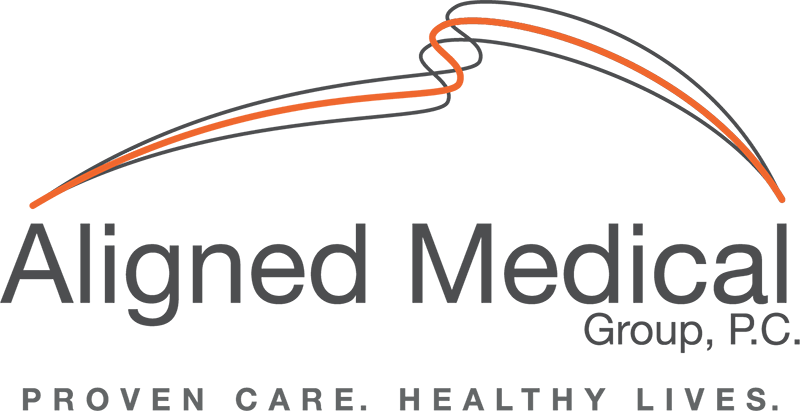Biologic Treatments For Effective Pain Relief & Healing
What are Biologic Treatments?
Biologic treatments are used by holistic medical specialists to stimulate your body’s inherent ability to heal itself. The products used are regulated by the FDA under 21 CFR 1271 within the Center for Biologics Evaluation and Research department, and these products are considered to be human transplant tissues and regulated as biologics. Regenerative therapies at Aligned Medical Group use human tissue and cell biologics to help the body heal.
Regeneration Therapy
Regeneration therapy uses of biologics like human cells and tissue products to heal through regeneration and help restore function. These products are considered safe since they are natural, unlike medications that can have serious side effects. “Regenerative medicine may be defined as the process of replacing or regenerating human… tissues… to restore or establish normal function” –American Association of Blood Banks
Biologic Treatments may be used with:
- Alternative to Joint Replacement
- Meniscus and labral tears
- Joint degeneration from arthritis
- Ligament, muscle and tendon tears
- Cartilage wear and tear
- Sprains and strains
- Rotator cuff damage

Types of Biologic Treatments
There are various products used in the HCTB field of medicine. There are two sources of biologics, autologous (derived from you) and allogeneic (donated by someone else).
Autologous Sources:
- PRP (platelet-rich plasma)- PRP is the use of your own blood to help your body accelerate healing and repair. First, a small amount of blood is drawn and then placed into a centrifuge to spin at a high rate. Spinning separates your blood into layers, so we can isolate your platelets. Platelets are rich with cytokines and growth factors, which help you heal. Growth factors are signaling proteins that stimulate cell growth, differentiation, survival, inflammation, and tissue repair. Cytokines are small proteins important in cell signaling, stimulating your immune system, and regulating the maturation, growth, and responsiveness of cells.
Typical Conditions PRP Can Help:
-
-
- Rotator cuffs
- Plantar fasciitis
- Tennis elbow
- Golfer’s elbow
- Muscle strain
- Tendonitis
- Mild cartilage damage
-
- Bone Marrow – Extracting your bone marrow can be painful, however, your bone marrow can help with healing and tissue regeneration. Bone marrow transplants have been used for decades, helping people with various cancers such as leukemia. For personal use, to regenerate and repair damaged joint tissues, your own bone marrow is harvested with a surgical drilling technique, and then injected into your damaged joint for tissue repair and regeneration.
- Adipose – Your adipose (body fat) contains regenerative cells that help with cell and tissue repair and healing as a regenerative therapy. Using a liposuction technique, your fat is extracted and spun in a centrifuge to isolate and harvest your own regenerative cells.
Allogeneic Products:
- Exosomes – Exosomes are biological molecules responsible for communication between our cells, telling the body to heal after damage or injury. They are like messengers, making cells aware of problems so that your body can respond. 1cc of umbilical cord tissue contains billions of exosomes.
- Umbilical Cord Tissue – Human placental tissues are rich in regenerative cells and molecules and are very useful for regenerative therapy. Umbilical tissue helps the immune system, regeneration of damaged cells, tissues, and organs, and reduces inflammation. Of all biologic treatments, umbilical cord tissue has the greatest capacity for healing and repair.
Typical Conditions Umbilical Cord Tissue Can Help:
-
- Cartilage damage or loss
- Ligament damage or tears
- Arthritis damage
- Labral tears, labrum damage
- Meniscal tears, meniscus damage
- Degeneration
- Neuropathy, sciatica, nerve damage
Frequently Asked Questions about Biologic Treatment Options
What are Stem Cells?
When a sperm fertilizes an egg, a zygote forms. From the zygote, embryonic stem cells form. Embryonic stem cells are “pluripotent”, meaning that these cells can give rise to any cell in our body. The use of embryonic stem cells is illegal in the United States, and we believe unethical since harvesting these cells requires loss of life. However, there is a better way to harvest and use regenerative cells AFTER birth.
The process of a cell changing into a different type of cell is “differentiation”. Embryonic stem cells (able to create ANY type of cell in the body) may create other stem cells such as Mesenchymal Stem Cells (MSCs) which are specified to differentiate into structural tissues such as bone, nerve, cartilage, muscle and tendon, and ligament.
How do Cell-Based Therapeutics work?
Our bodies have an innate and powerful ability to heal. We have trillions of cells, each living independently yet serving other cells, forming tissues, organs, and systems. Together, all these cells keep us alive. When damage occurs to our cells or when cells die, our bodies heal the damage and safely remove the dead cells, replacing them with stem cell differentiation (the change of a general stem cell into a specific tissue cell).
Are Biologic Treatments Safe?
Biologic treatments are considered safe, since they are substances occurring naturally in our bodies. Placental tissues come from healthy women with informed consent and no woman or baby is harmed or at risk from collecting the healing tissues. The tissues are regulated by the FDA under 21 CFR 1271 within the Center for Biologics Evaluation and Research department. Additionally, Aligned Medical Group only uses products that abide by the American Association of Tissue Banks, Current Good Manufacturing Practice, Current Good Tissue Practice, and International Organization for Standardization.
Biologic Treatments are a Great Option for Connective Tissue Injuries
Soft-tissue damage and injuries to connective tissues like cartilage, ligaments, muscles, and tendons can be treated with biologic treatments. Common connective tissue problems include tendonitis, bursitis, and sprains. Initial treatment for these injuries includes RICE (Rest, Ice, Compression, and Elevation). If this treatment is ineffective, or if symptoms persist, make an appointment at Aligned Medical Group for an evaluation.
Conditions We Help at Aligned Medical Group
|
|
Are They Covered by Insurance?
There are no insurances covering biologic treatments or regenerative therapy for orthopedic use. Pricing varies, depending on which type (or types) are used. Our office provides various financing options, so most patients are able to afford our regenerative therapies.
Read Our Featured Articles
Is Your Work From Home Job Causing Chronic Pain?
Many work from home jobs are vital in keeping our modern world moving. Unfortunately, they aren’t ideal for our physical wellbeing. Many jobs like an administrative specialist, office manager, project manager, IT support, medical office assistant, customer service...
How to Travel with Sciatica: Expert Tips for Pain-Free Trips
When your sciatica nerve gets irritated, compressed, or inflamed, it can cause sharp, shooting pains, tingling or numbness. You’ll feel the pain along the nerve anywhere from the lower back, through your hips, buttocks or legs. When you have a history of sciatica...
When to Consider Surgery for Sciatica
Surgery for sciatica pain may be considered when other treatments fail to provide relief, or when specific severe sciatica symptoms are present. For example, when symptoms persist or worsen when the patient has undergone treatments regiments such as physical therapy,...
Office Hours
- Monday: 8:30 AM - 7:00 PM
- Tuesday: 8:30 AM - 1:30 PM
- Wednesday: 8:30 AM - 6:00 PM
- Thursday: 2:00 PM - 7:00 PM
- Friday: 8:30 AM - 1:30 PM
*Call if you would like a time outside our normal hours, and we'll do our best to accommodate you*



